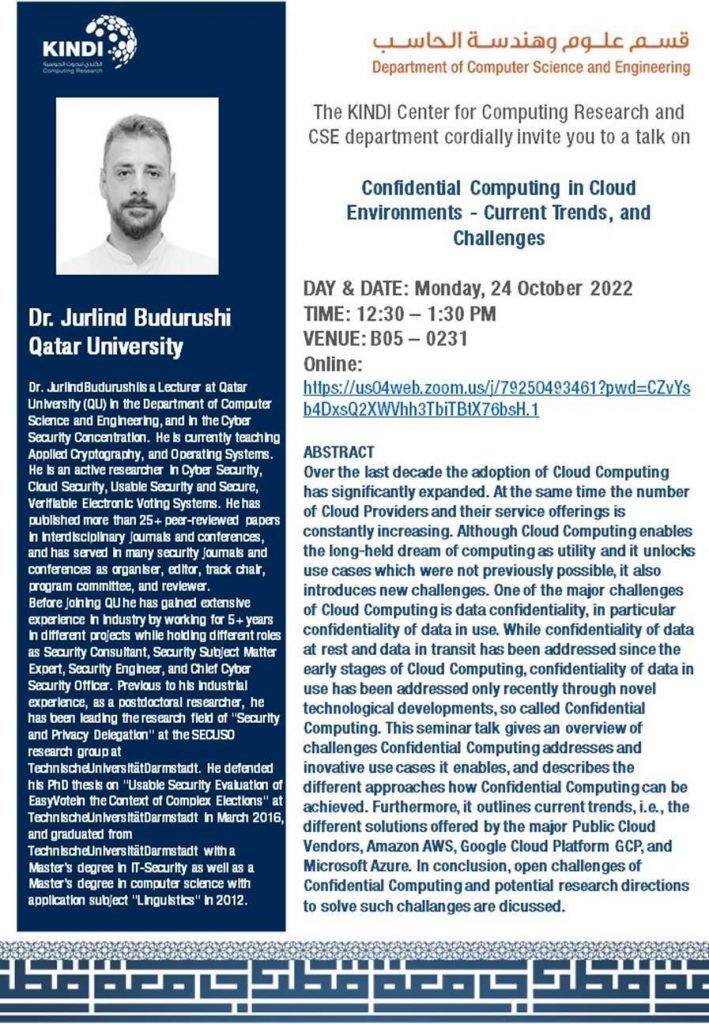Home » Articles posted by farah.am.q (Page 14)
Author Archives: farah.am.q
Recent Posts
- CSE faculty receives research funding from Google
- CSE SDP Contest Day Fall 2025
- QU Students Win First Place at the AIX Summit Hackathon!
- CSE Faculty Secures QRDI Grant Award for AI-Integrated Islamically-Grounded Psychotherapy
- CSE Dept. Honored at Huawei’s “Innovation in Education and Talent Excellence” Event
Archives
- December 2025
- November 2025
- September 2025
- August 2025
- May 2025
- February 2025
- January 2025
- December 2024
- November 2024
- September 2024
- June 2024
- May 2024
- April 2024
- March 2024
- February 2024
- January 2024
- December 2023
- November 2023
- October 2023
- September 2023
- June 2023
- May 2023
- April 2023
- March 2023
- February 2023
- January 2023
- December 2022
- November 2022
- October 2022
- September 2022
- August 2022
- May 2022
- April 2022
- March 2022
- February 2022
- January 2022
- December 2021
- November 2021
- October 2021
- September 2021
- August 2021
- July 2021
- May 2021
- April 2021
- March 2021
- February 2021
- January 2021
- December 2020
- November 2020
- October 2020
- September 2020
- August 2020
Categories
CSE Student Won in Huawei ICT Competition 2022
December 24, 2022 / Leave a comment
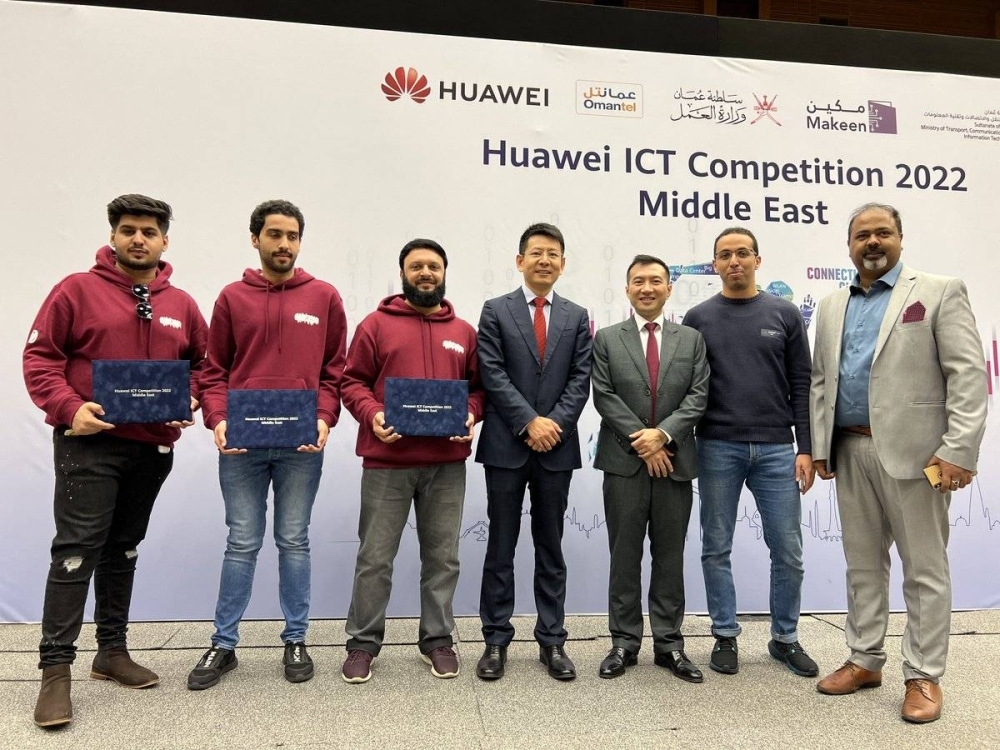
Congratulations to the Qatari team who managed to win the “Outstanding Performance Award” in the regional Final of the Huawei ICT competition (Middle East) that was held in Oman from 20th to 22nd of December. The team consists of three students: Hassan Khan from our CSE department at QU, and two other students from HBKU and CCQ
The Huawei ICT competition aimed at nurturing ICT talents to contribute towards preparing the next generation of ICT leaders for the digital economy. This year’s competition featured 15 teams representing 11 countries across the Middle East and Central Asia. A total of 45 students competed in the finals from an initial entry of 19,231 students from 472 universities and colleges across the region.
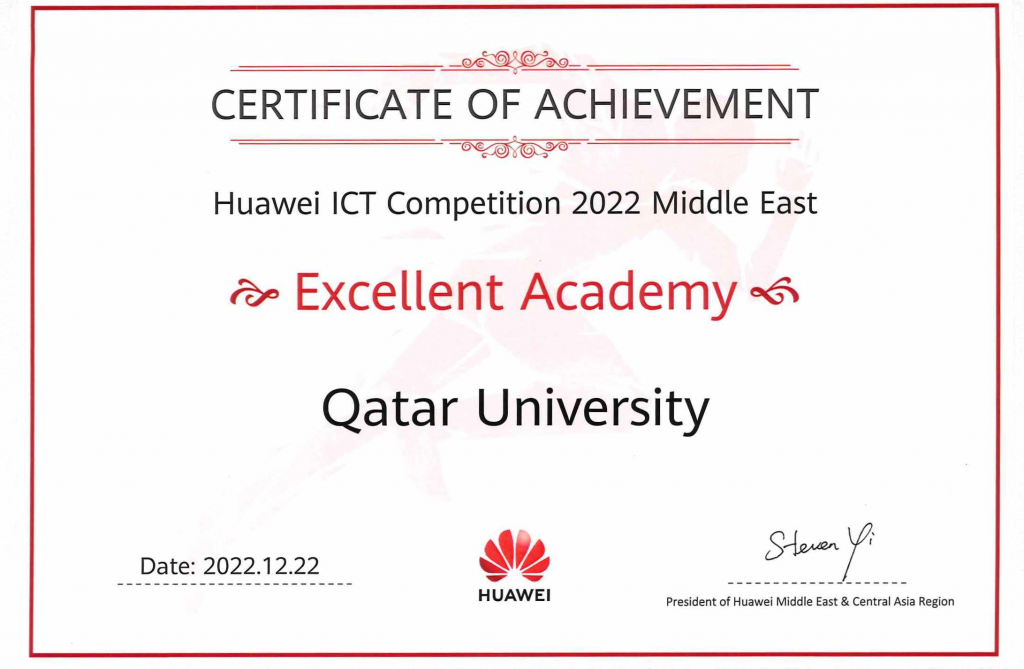
Additionally, Qatar University received the award of “Excellent Academy” due to the great operation of the ICT academy and the number and level of students who have been certified.
CSE faculties awarded QU grants
November 23, 2022 / Leave a comment
Congratulations to the CSE faculties who were awarded several QU internal grants this cycle. Here is an overview of the winning projects led by our faculty members.
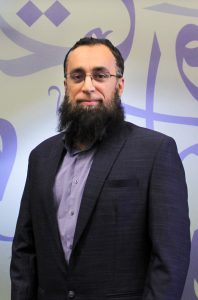
Project title: “Towards Robust Ethical and Pro-Social Artificial Intelligence Enabled Extended Reality (AI-XR) Metaverse Applications”
Project’s team: Dr. Junaid Qadi (CENG) (LPI), Dr. Osama Halabi (CENG), Dr. Ezieddin Elmahjub (CLAW), Dr. Abdulaziz Khalid Al-Ali (CENG), Dr. Khaled Shaban (CENG), Dr. Muhammad Bilal (UWE, UK).
Grant) category: High Impact Grant
Project abstract: These days the Metaverse—a more powerful and immersive iteration of the Internet—in which the virtual and physical world and realities will be seamlessly meshed—is fast emerging. The metaverse will be based on Artificial Intelligence (AI) and Extended Reality (XR) applications that leverage Virtual Reality (VR), Augmented Reality (AR), and Mixed Reality (MR) technological developments. The metaverse, like the current Internet, will leverage information and communication technologies (ICT), but it will be qualitatively different by enabling real-life-like 3-D experiences through the incorporation of AI-XR technologies. The adoption of the vision of metaverse by numerous companies such as Facebook (now called Meta), Microsoft, Google, and Amazon, and the infusion of billions of dollars of investment, promises to be the harbinger of a great transformation. However, there are numerous open socio-technical issues that need investigation. How can we ensure that the wellbeing of the society and the human individuals improves through the development of the metaverse? How can we ensure that the virtual world is more safe, inclusive, and pro-social? In this project, we propose to study these problems as a transdisciplinary team comprising of principal investigators from the College of Engineering, College of Law, and College of Arts and Sciences at the Qatar University. The team is well-positioned to undertake this research due to their prior background in AI Ethics, AI Regulation, XR technology from complementary perspectives (engineering, socio-technical, ethical, legal, and philosophical). We will study the security and robustness of AI-XR Metaverse Applications and will develop technical, policy, and legal solutions for ensuring a Secure, Robust, and Prosocial Future for AI-XR Metaverse Applications. Through this research project, we aim to develop research linkages across QU Colleges and Centers and perform capacity building while also working on a project that has national, regional, and international significance.
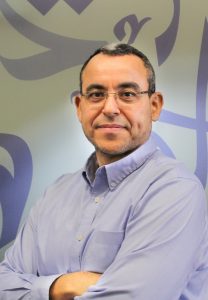
Project title: “Pervasive AI-Based smart health framework over 6G Networks”
Project’s team: Dr. Amr Mohamed (CENG) (LPI), Dr. Elias Yaacoub (CENG) Dr. Abdulla Al-Ali (CENG), Dr. Nikhil Navkar (Collaborator)
Grant category: IRCC grant
Project abstract: Smart health (s-health) technologies have great potential to improve healthcare services of countless individuals. However, we need to proactively address the technical, social, and ethical challenges appearing with the deployment of such technologies, hence, the potential benefit is not hindered. The prompt evolution of Artificial Intelligence (AI) approaches, Internet of Things (IoT)-based systems, and 6G technologies is paving the road towards a plethora of s-health applications. Indeed, pervasive AI, defined as the paradigm of smartly distributing AI techniques in healthcare systems, has been envisioned to revolutionize several societal, economic, and industrial aspects of our future by enabling real-time machine-to-machine and human-to-machine interactions in the 5G era and beyond. Thus, our vision is to provide scalable and cost-effective healthcare services for the Qatari citizens without even getting to the hospital. Our project goal will be broadly to develop a pervasive AI-based s-health framework that integrates the power of AI for efficient medical data processing with 6G technologies for providing smart and policy-driven medical data management. We plan to leverage advanced AI techniques at different network’s levels, such as federated learning, and multi-agent reinforcement learning, while providing optimized medical data delivery across heterogeneous 6G network for immediate response, i.e., minimum delays, and energy efficiency. Hence, driven by dignified progress in computational and communication techniques, we believe that we can support a radical improvement in healthcare systems. Furthermore, one of our aims is to support good coordination and collaboration amongst different healthcare stakeholders and national health information systems through developing an s-health data sharing system to jointly gather, process, and analyze health-related information. Through this project, we plan to foster the collaboration with international partners in University of Guelph, in addition to the local healthcare stockholders, such as Hamad Medical Corporation. This will enable us to develop innovative techniques for diagnosis, prognosis, development of follow-up therapeutic strategies for the patients, while focusing on the health priority areas in Qatar, such as diabetes, cancer, and neurological diseases. Specifically, we plan first to design and implement a novel architecture that leverages AI approaches and 6G technologies to fulfill diverse QoS requirements of s-health applications. Then, we will leverage this architecture for developing optimized AI-based processing, event-detection, and network-aware solutions that aim to collect, process, and transfer the acquired patients’ data in an efficient and cost-effective way that allows for implementing advanced healthcare services.
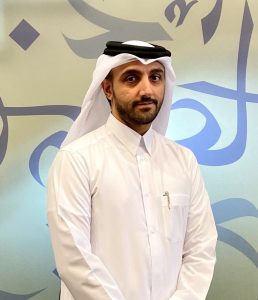
Project title: “Bypassing Intrusion detection systems using Generative Adversarial Networks”
Project’s team: Dr. Abdulaziz Al-Ali (QU-KINDI/GENG) (LPI), Dr. Abdelhak Belhi (Joaan bin Jassim Academy for Defense Studies, Ministry of Defense), Dr. Abdelaziz Bouras (GENG), Dr. Sandy Rahme (QU-KINDI)
Grant category: Collaborative grant
Project abstract: In this project, the goal is to investigate the ability to automatically bypass network intrusion detection systems and firewalls using generative models placed in a reinforcement learning setup. The overall idea consists of leveraging recent advances in machine learning and artificial intelligence to validate the claim that bypassing security appliances in networks can be automated and made easier. The current state of the art suggests that using generative models for network packet crafting has great potential when it comes to the quality of the generated packets; thus, motivating us to direct the packet generation towards the specific goal of the project.

Project title: “Intelligibility Assessment of Dysarthria using Vocal Information and Machine Learning for Healthcare Application”
Project’s team: Dr. Sumaya Al-Maadeed(GENG) (LPI), Dr. Moutaz Saleh (CENG), Dr. Abdulnaser Fakhrou (CEDU), with collaboration with VIT University, India.
Grant category: International Research Collaboration Co-Fund
Project abstract: Speech disorders related to neurological problems affect the person’s ability to communicate through speech. Dysarthria is a speech problem caused by muscle weakness, resulting in slurred, slow, and incomprehensible speaking. Automatic dysarthria intelligibility assessment from speech can be a useful clinical tool in the treatment of dysarthria. Cerebral palsy, amyotrophic lateral sclerosis (ALS), and Autism spectrum disorder are dysarthric severe speech disorders. In the project, we aim to develop a tool to detect the early stage of dysarthric disorders. In the first part of the work, we mainly concentrate on feature extraction using the glottal excitation source, spectral and prosodic features of verbal and non-verbal vocalizations. In the second part of the work, we aim to use machine learning algorithms to detect the stage of the particular speech disorder. Further, by using the proposed feature extraction process and machine learning algorithms we aim build a cost effective tool to detect the early stage and severe speech disorder. Later, we aim to deploy the developed tool in healthcare centers to detect the early stage of Dysarthric and other speech disorders. Prior to develop the tool, we aim to collect voice samples from the dysarthric person.
Invitation to seminar: Restore to Analyze Biomedical Signal Restoration and Analysis
November 3, 2022 / Leave a comment
Don’t miss the seminar!
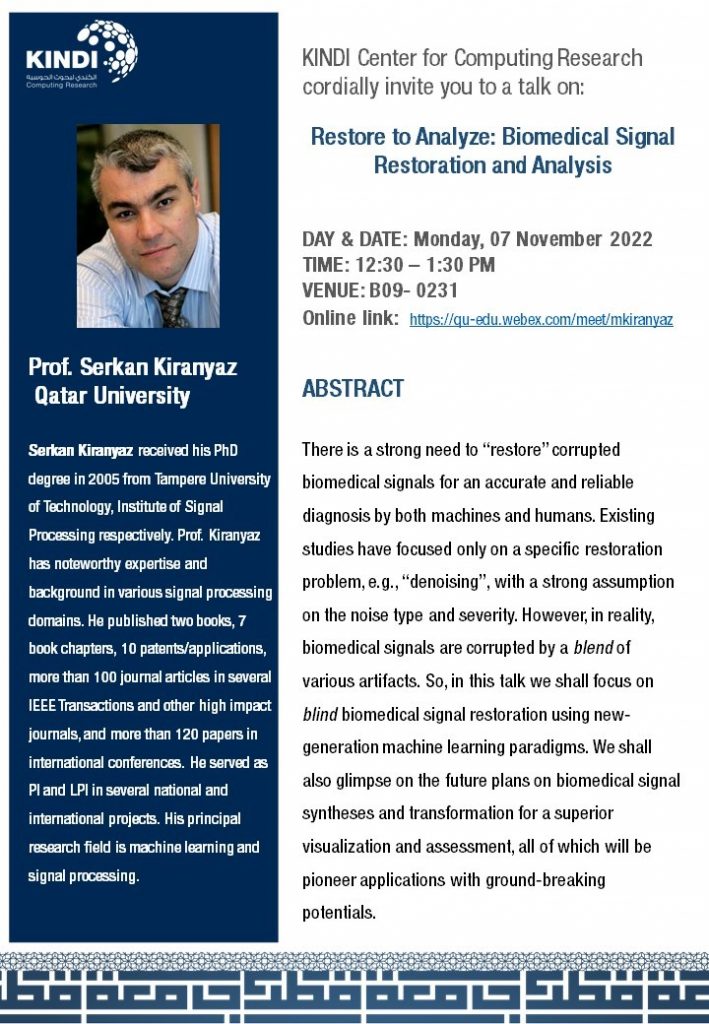
QU Ranked among Top 100 Universities Worldwide in Computer Science (THE 2023)
Qatar University has been ranked among the top 100 universities worldwide in Computer Science, according to Times Higher Education (THE) World University Ranking of 2023 that was just released. This is indeed a big achievement for our department. It is surely a result of years of active and hard work in planning, teaching, and research. Congratulations to all members!
QU’s rank has jumped this year over about 25 positions in THE CS subject ranking. With a steady progress over years, here are the CS ranks of QU since 2018:
- 2018: 251-300
- 2019: 201-250
- 2020: 201-250
- 2021: 101-125
- 2022: 101-125
- 2023: 95

CSE Team Wins Best UREP 2022 Presentation
October 19, 2022 / Leave a comment
A CSE team of undergraduate students, supervised by our faculty member Dr. Noora Fetais, won the Best Presentation award in the 14th Annual Undergraduate Research Experience Program (UREP) competition, which was held on 18th of October 2022. The winning project is titled “Intelligent and Immersive Cultural Game using Virtual Reality” and the team consists of the students Yahia Boray, Hesham Zaky, and Omar Osman.
UREP is one of the main programs offered by Qatar National Research Fund (QNRF) and designed to fulfil its aims in developing research infrastructure in Qatar by establishing the basis of scientific research at the undergraduate level. UREP provides a great opportunity for undergraduate students to experience scientific research and to engage in the various processes to build skills essential for the professional development of the students.
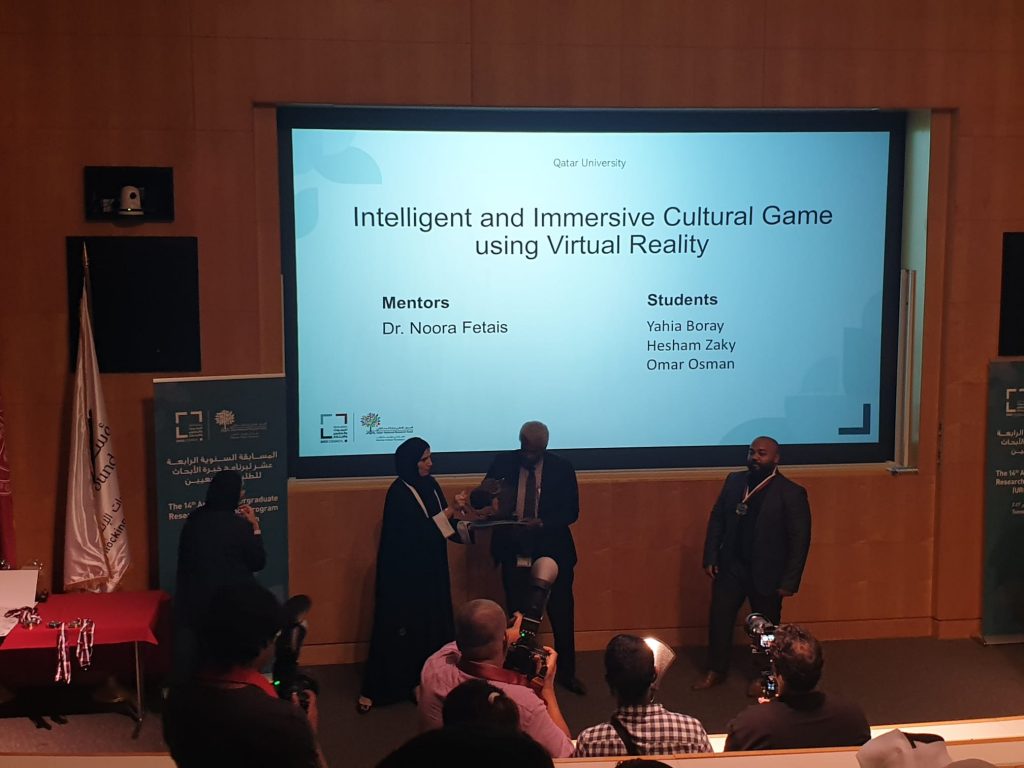
The developed game aims to preserve and spread cultural practices. It introduces new gaming mechanics, allowing user interaction with virtual game objects using hand gestures. The user’s objective is to hunt prey in their natural habitat which means that the player will physically change his location to hunt a specific prey using his falcon to mimic how the falcon hunts for its’ prey in the real world. This interaction with the real world, along with the incorporation of realistic graphics and mixed reality features, enhances the user’s experience and helps in preserving cultural practices.
Previous work tried to achieve the same goal by different approaches that led to different user segments and different usability cases. One major limitation in that work was the accessibility due to the use of specialized hardware. The hardware is accessible to only a small segment of users, and due to the challenges forced by the COVID19 situation reusing the hardware is prohibited in conferences or exhibitions.
As a result, not many will have access to the developed solution. The new implementation was designed to work on both Android and IOS to have a social interaction between the largest possible numbers of players. Other features that could also contribute to the goal of the project include building a virtual museum and displaying real falcons using the capabilities mixed reality has to offer.
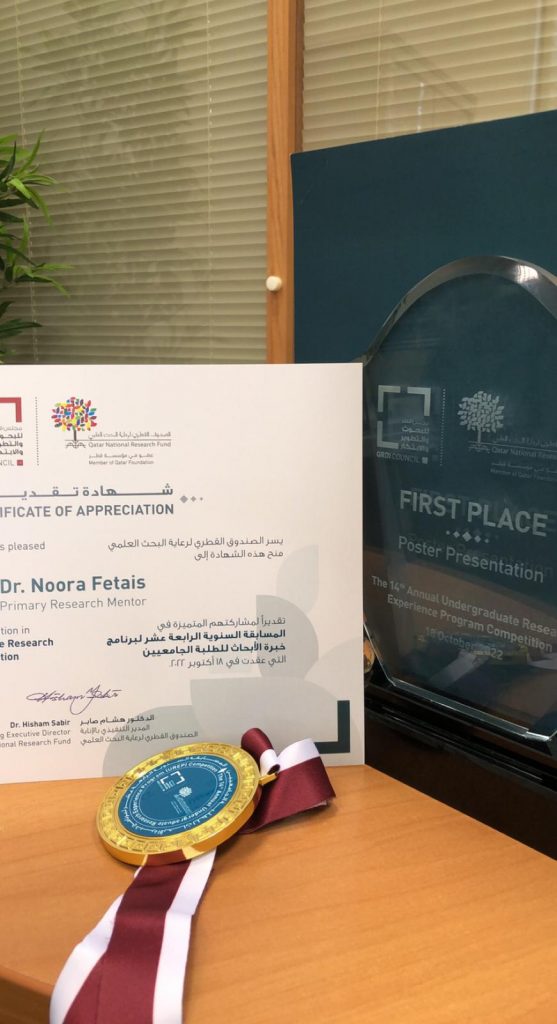
Congratulations to the winning team!

